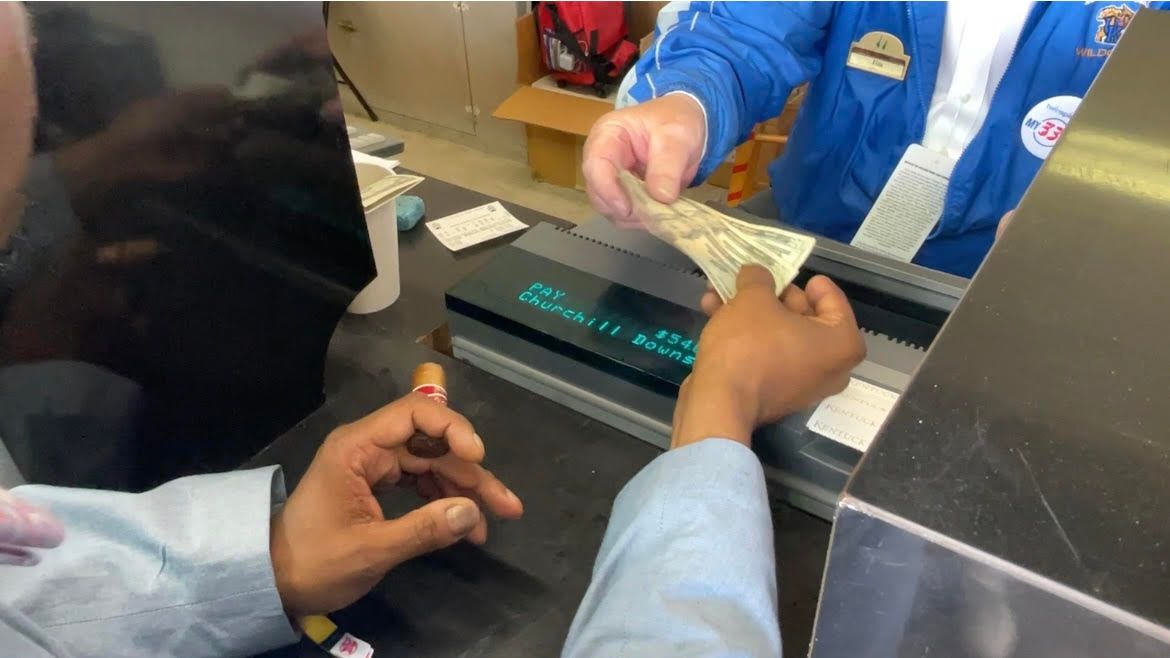


LOUISVILLE, Ky. — Gambling on horse racing in America differs from betting on almost every other sport and some say that needs to change.
Horse racing uses a pari-mutuel system. There’s a pool of money wagered, the track takes a cut and the rest is distributed to the winning bettors. But that system means you don’t know what the final odds will be when you make your bet —because they are constantly changing until the race begins.
James Gazzale is the lead writer for LegalSportsReport.com and says that can be a problem. He told Spectrum News 1, “what we’ve seen over the last handful of years is just some wild fluctuations in those odds that has been quite frustrating for horse players. And the transparency around that hasn’t been great.”
He also points out that the current system can intimidate people who know little about horse racing.
Some argue the solution is fixed odds, where you lock in a number like you do in a traditional football or basketball wager. The price you bet is the price you get.
Fixed odds wagering wouldn’t replace the current system, but give fans another choice.
Advocates argue the simplicity could draw more casual fans to the sport. Gazzale says it would also allow different kinds of bets we don’t see now. Things as simple as: “Is this favorite going to win? Yes or no. Is this horse going to beat this other horse in the race? I think it just opens up a large menu of options.”
A recent survey by BetMakers showed that two-thirds of U.S. sports bettors would be more likely to wager on horse racing if fixed odds were available and 83% of current horse players want fixed odds added as an option
It’s already available in many other countries around the world. In Australia, 75% of horse betting is now with fixed odds, compared to 25% in the pari-mutuel pool.
In the U.S., fixed odds wagering on horse racing is already legal in New Jersey and Colorado and state legislators in New York introduced a bill in January that would allow it there as well. But taking the concept nationwide faces pushback from horsemen who are concerned that a reduction in the pari-mutuel pool would mean less money for purses. They worry that betting revenue will go sports books instead of those who make a living in the sport.
Churchill Downs Incorporated isn’t on board either. They issued a statement saying, “Fixed-odds wagering would be bad for horse racing because it would reduce a great deal of value for players. Pari-mutuel betting delivers a big return for your wagering dollar because you are betting against other players and not a professional risk platform of a gambling house. Pari-mutuel pools can produce odds with sizable payouts which creates and protects customer interest in the game.”
Gazalle says change may come eventually, but it could take a while.
“I think we’re seeing operators start to really push for it as a way to bring people across from sports to horses. Is something on the immediate horizon? No, probably not. But I think we might be having a different conversation 5 to 10 years from now as that horse betting landscape starts to shift a little bit.”
He added, “Churchill Downs has never been a proponent of fixed odds wagering and they’re a powerful player in the horse racing world. If they could get behind it, it would take off (but) I think a lot remains to be seen in that regard. Will it be available on the Kentucky Derby? I would probably say no, but I think it might be available in a handful of more states here in the next couple of years.”
For now, fixed odds wagering in horse racing remains a long shot, but it’s one worth watching.